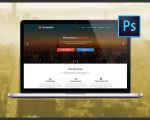How to Choose the Right Website Design Company
When you decide to launch or revamp your website, one of the most crucial decisions you’ll make is choosing the right website design company. The process might seem daunting, but with a clear understanding of what to look for, you can find the perfect partner to bring your vision to life. In this article, I’ll share my personal experiences and provide valuable insights into how to navigate the maze of options available to you in the U.S. market. Whether you are a small business owner or a large enterprise, this guide will help you make an informed choice.
1. Understand Your Needs Before Searching
It all starts with understanding exactly what you need from your website. Are you looking for a simple informational page or an e-commerce platform with advanced features? Do you need custom designs or would a template suffice? I learned early in my journey that being clear on these requirements will save you time and help narrow down your options. For example, when I first started my online store, I didn’t realize the difference between a basic brochure site and a full-fledged e-commerce platform. As a result, I ended up choosing a company that didn’t specialize in e-commerce, and it caused unnecessary delays and frustration.
2. Research and Evaluate Portfolio
Once you have a rough idea of your needs, it’s time to look for website design companies. One of the first things you should do is evaluate their portfolios. This is where you’ll get a feel for their design style and the types of businesses they’ve worked with. When I was searching for a design company for my own website, I focused on their past projects to assess whether their designs aligned with my brand’s identity. I also looked for signs of creativity and technical expertise. For example, did they incorporate modern design trends? Was the website user-friendly? These are important questions to ask as you browse through portfolios.
3. Read Client Testimonials and Reviews
Client testimonials and reviews can give you a good sense of the company’s reputation and work ethic. When I was choosing my website designer, I made sure to read both positive and negative reviews. Positive reviews will tell you about their strengths, while negative reviews will help you spot potential red flags. It’s also worth reaching out to previous clients to get their first-hand feedback. Many website designers showcase testimonials on their sites, but I found that digging deeper by asking for client references provided more accurate insights into their service quality and reliability.
4. Consider the Company’s Experience
Experience matters. I know from personal experience that working with a seasoned web design company can make a huge difference in the outcome of your project. Experienced companies have a proven track record of delivering high-quality websites on time and within budget. When I worked with a new company, I encountered numerous delays because they lacked the experience to foresee and solve potential problems. The best website design companies are those that have been in the industry long enough to anticipate common issues and provide efficient solutions.
5. Assess Communication and Customer Support
Effective communication is key to a successful website project. I can’t emphasize enough how important it is to have open lines of communication with your design company. From the initial consultation to the project’s final delivery, being able to clearly communicate your needs and receive regular updates is essential. If a company is hard to reach or unresponsive, it can cause delays and frustration. When I was working with my current design team, they made sure to keep me in the loop every step of the way, which helped ensure the project stayed on track.
6. Evaluate Their Technical Skills
Web design is not just about making things look pretty—it’s also about functionality. Make sure the company you choose has the technical expertise to create a website that works seamlessly. This includes proficiency in HTML, CSS, JavaScript, and other programming languages. I once worked with a company that didn’t have the technical know-how to integrate essential features, which led to bugs and functionality issues. You should also ask about their experience with SEO, security protocols, and mobile responsiveness. A good website design company should have a deep understanding of these elements to ensure your site performs well on all devices and ranks well in search engines.
7. Set a Realistic Budget
When I was first shopping around for a design company, I didn’t have a clear budget in mind. I quickly realized that web design costs can vary widely based on the complexity of the project. It’s important to set a realistic budget and communicate it to your prospective design company. Be wary of prices that seem too good to be true—while it’s tempting to choose the cheapest option, I learned the hard way that lower costs often come with sacrifices in quality. On the flip side, don’t assume that the most expensive company is always the best. The key is to find a company that offers the best value for your budget.
8. Look for Post-Launch Support
Website design doesn’t end when the site goes live. It’s crucial to ensure that the design company you choose offers post-launch support. This can include anything from fixing bugs to updating the website as your business grows. I’ve worked with companies that disappeared after launching the site, leaving me with unresolved issues. The right design company will provide ongoing support and be available for any future updates or tweaks that your site may need. Be sure to ask about their post-launch services before you commit to a contract.
9. Trust Your Gut
Finally, trust your instincts. If something doesn’t feel right during the initial consultation or throughout the process, don’t be afraid to walk away. I’ve had experiences where I felt uncomfortable with a company’s approach, and ultimately, those projects didn’t turn out well. Working with a website design company is a partnership, and it’s important to choose a company that aligns with your values and vision. Don’t settle for anything less than a team that understands your goals and is genuinely invested in your success.








